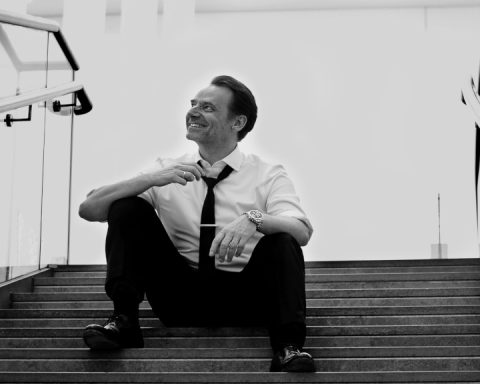Let’s take a quick look back at Shakespeare’s time to gel in with the theme. The play Macbeth was finished in 1606, a mere three years after Queen Elizabeth’s death, which sealed the end of Shakespeare’s days of realising confidently optimistic topics in the vein of A Midsummer Night’s Dream. Similar to Hamlet and other tragedies, Macbeth is a reflection of the Jacobean age, contemporaneous with the instalment of King James I (James VI of Scotland) as the ruler of the whole of Britain. Guy Fawkes’s failed gunpowder plot of 1605 saw the conspirators betrayed, brutally tortured and executed; events that shook the country at its very core. The repercussions of these events had a clearly visible effect on Macbeth, epitomised by the allegorical demise of everyone involved in political backstabbing (literally).
Religion was obviously a very important matter as well. It was commonly believed that the Christian god had put into place a system for people and nature in which every living soul had its predestined place. Trying to alter one’s position was equal to offending the almighty. Everyone respecting this system, aka the Christian god’s will, could then ascend to heaven after they had died. Witch trials and the burning of women were common scenarios. James attended the North Berwick witch trials himself, and Shakespeare’s representation of the witches in Macbeth play up to his king’s superstition by depicting them as powerful and malicious summoners of the Christian god’s antagonist; the devil.
Against this backdrop, characters and moral messages of Shakespeare’s cinematic adaptation are probably a bit easier to understand. In Justin Kurzel’s movie (2015), the dark undertones are captured nicely by a very subdued atmosphere of perennial fog, long night scenes and madness seeping into the fabric of everyday life. The actors don’t speak in the exaggerated theatrical way that we are all too used to from witnessing stage productions. This is a rather refreshing circumstance, although it does initially take some getting used to wrapping your mind around the characters’ blank verse. Shakespearean dialogue is not instantly accessible, and it most likely wasn’t for your average Jacobean contemporary either. Fast forward 400 years and it sounds quite outlandish to our besotted minds, but it never forfeited its intellectual and poetical appeal.
As to the question of whether Macbeth’s core theme – the blind ambition and tragic lust for power –gets conveyed in a tangible way, the answer has to be a resounding yes. Just give it 20 to 30 minutes, and you’ll find yourself immersed in the dark ages of the 11th century. You will probably be surprised at how much Shakespeare’s characters speak to you, and what’s that thing vibrating in your pocket? Whatever it was, keep pondering those timeless words of wisdom like “Never pull your hat upon your brows. Give sorrow words. The grief that does not speak whispers the over-fraught heart and bids it break.”
The play is packed with profound lines like this one. In Macbeth’s famous soliloquy at Lady Macbeth’s deathbed (see below), for example, we see core ideas of existential philosophy anticipated at least 250 years before these were elaborated in philosophical thinking. And akin to more modern literary characters such as Rodion Romanovich in Dostoevsky’s Crime and Punishment or Meursault in Camus’ The Outsider, the protagonists in Macbeth are anti-heroes that we struggle to fully empathise with. They do, however, display human faults that we are aware of, and this very fact makes us want to forgive them for their shortcomings. None of them gets away with murder, and we are left to suffer with them as we see them headed for a disastrous and tragic end.
Tomorrow, and tomorrow, and tomorrow,
creeps in this petty pace from day to day, to
the last syllable of recorded time; and all our
yesterdays have lighted fools the way to dusty
death. Out, out, brief candle! Life’s but a
walking shadow, a poor layer, that struts and
frets his hour upon the stage, and then is
heard no more. It is a tale told by an idiot, full
of sound and fury, signifying nothing.
Kurzel’s Macbeth doesn’t romanticise, it doesn’t try to exaggerate or overexceed, it simply manages to get to the sinister core of human wickedness, not least by creating a fascinatingly sullen atmosphere. The inhumane one-dimensionality of a power-driven mind as an end in itself is echoed by the characters’ rather cool interaction, maybe like you would imagine Romanovich or Meursault to behave. The way they talk feels unagitated and completely autochthonous, meaning down-to-earth while cultivating the Scottish vernacular.
Michael Fassbender delivers an impressive account of Macbeth and the character’s all too human traits. His stellar performance is only occasionally let down by not being able to fully disguise his Irish accent, which is not really a deal breaker. Marion Cotillard appears utterly believable as the conniving Lady Macbeth, and Sean Harris does a brilliant job to depict the vengeful brute Macduff. Great little cameos include David Thewlis (King Duncan) and Elisabeth Debicki (Lady Macduff), all credit to both the astute choice of actors and brilliant stage direction.
Just lean back, enjoy the fantastic depiction of foggy Scottish highlands and authentic costumes, and get lost in this enjoyably dark movie that – next to letting you forget about checking your phone for at least two hours – will drag you into the shoals of one of Shakespeare’s most popular masterpieces.









